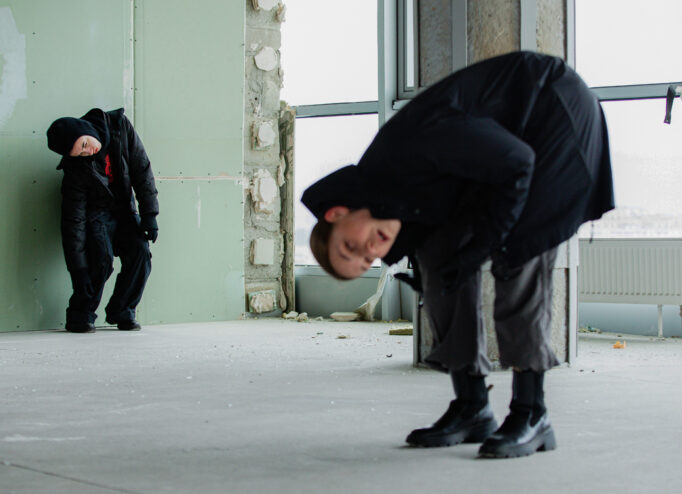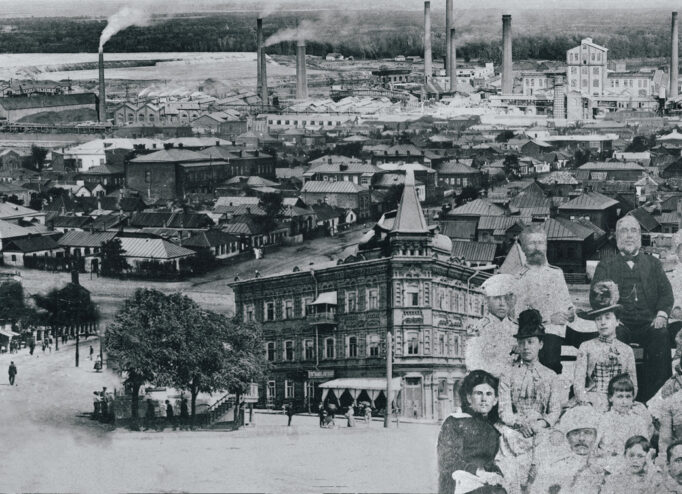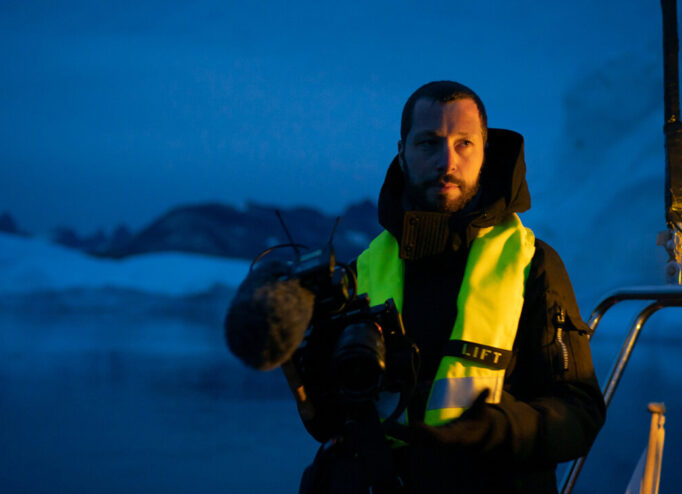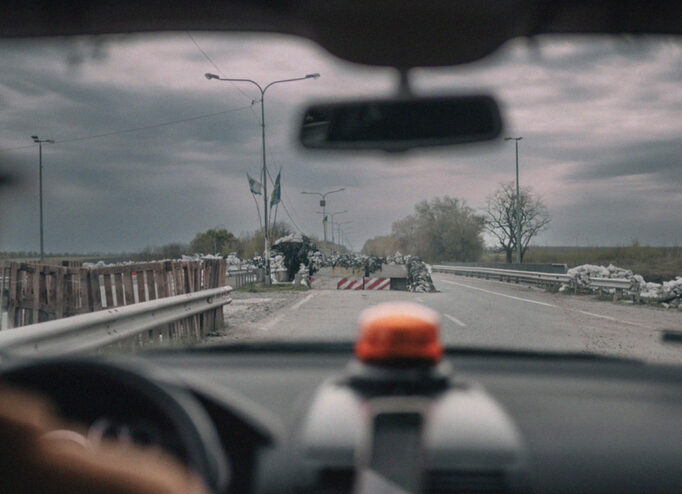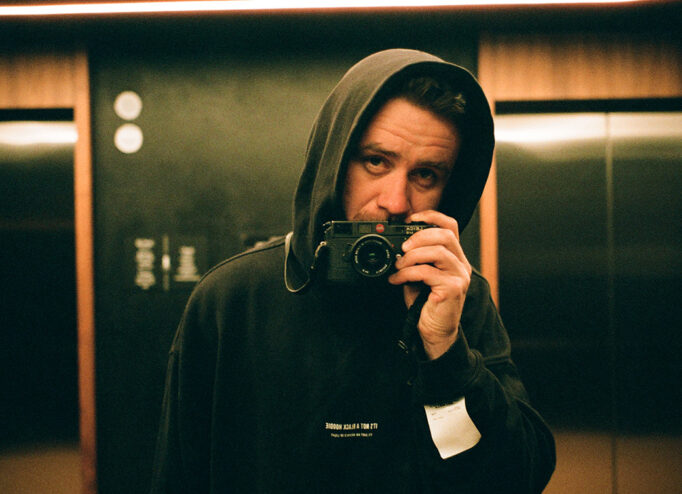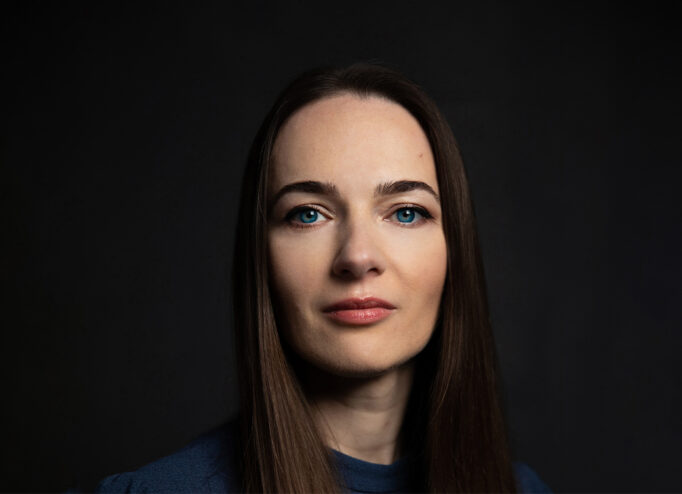Valentyn Vasyanovych’s last two films touched on themes that Ukraine is currently experiencing, namely the aftermath of war, torture and death. «Atlantis», a dark dystopia filmed in Mariupol, won the «Horizons» section at the 2019 Venice Film Festival. The film told the story of the world of 2025, in which Ukraine defeated russia and regained the territories of the Donetsk and Luhansk regions, which survived an ecological disaster. His next live-action film «Reflection», which was already in the main competition at Venice, showed the life of a military surgeon after torture and abuse in captivity. After the invasion of russia, Valentyn Vasyanovych again presents these films at international film festivals, speaking to foreign audiences and also documenting the war crimes of the aggressor in Irpin.
DTF Magazine talked to the director about making sense of events in films, how to reach out to international audiences, and why the world’s biggest festivals will not give up on russian cinema
Valentyn Vasyanovych began as a documentary filmmaker, gradually moving on to live-action films. As a cameraman he shot «The Tribe» by Myroslav Slaboshpytskyi, and on his own films he works not only as a director, but also as a cameraman, editor and producer. His films are often played by non-professional actors who have specific looks and experiences similar to the characters. His films «Black Level» (2017) and «Atlantis» (2019) were nomination entry from Ukraine for the Oscars.
— The events in your film «Atlantis» take place in Mariupol. How do you feel when you see footage from there?
— It pains me very much to look at this footage. We filmed there for three months, there were a lot of familiar people, familiar locations. To be honest, I didn’t imagine this scale of destruction when I was working on the film. I didn’t imagine it would come to nuclear blackmail and unconventional warfare, and it turned out to be much harsher.
— Why did you choose Mariupol for filming?
— I planned it that way from the beginning. We had the steel mill in our frame, and it was the best location. Not to mention the proximity to the combat zone, and we took advantage of that. And it was a great location in terms of logistics and texture.

— Did modern Mariupol coincide with how you imagined it in your dystopia «Atlantis»?
— I didn’t think about it, but considered the texture of the location and Mariupol was the best place for it. It’s a complete coincidence [with my film] regarding what was and is happening in that city.
— You went to shoot a chronicle near Kyiv with the beginning of the open invasion. Why did you decide to do that?
— It’s an emotional decision. You want to be useful for something, to fix something. And yet the profession of reporter is a specific genre in which you probably need to have a different type of temperament.

— You said you were unlikely to move into documentary filmmaking after live-action, but now you’ve changed your mind and moved on to chronicle?
— I tried to do it, but in the end I realized that I was not a good reporter. I was interested in long observations of people when I was making documentaries, but reporting is different. And there are several groups on the set covering these events, so I focused more on communication during film screenings.
Now «Atlantis» has been given a second life and is being shown in many countries. I am again participating in Q&As and conversations with journalists, and I find it much more rewarding. There are fantastic people, cameramen like Yurii Gruzinov («Grushevsky Cocktails», «From Maidan to Aydar») and Serhiy Mykhalchuk («The Guide», «Paradjanov»), who shoot chronicles much better than I do.
— Where and when did you hear the news about the open invasion of russia?
— It happened in Kyiv. I immediately decided to take my family away. Now I spend part of my time in Kyiv and the other part near Kyiv. It’s important for me to be close to what’s going on, to experience it emotionally and to be inside, to be able to use it later, maybe, for my films in the future. There will be nothing emotional if you watch the story from afar through some media. It’s not enough.
— Sometimes it seems that Ukrainian auteur films that make it to film festivals speculate on the theme of war and it has become mainstream in the festival world.
— I don’t see anything wrong with that, because we have a war going on. This is the most painful topic right now, and that’s normal. I don’t think it’s speculation, because we need to make sense of it, explore it, and discover it for ourselves and the world.
— You talk about making sense of what’s going on around us. How can watching, say, «Reflection» prepare or help us to reflect on what we saw in Bucha?
— What happened in Izolyatsia and Bucha is the traditional practice of the troops and special services of the russian federation. And we must win this war so that the whole country does not turn into a concentration camp. The footage from Bucha is much more powerful and terrifying than what the viewer can see in the film. No film can prepare for this level of brutality.

— You made films about the war and said you wanted to reach out to an international audience in particular. How successful is that in your opinion?
— I considered this to be my main goal. There were a lot of publications, a lot of interesting conversations on Q&A, but I understand that I can’t change the world. I can, however, once again be reminded of the war. I am not competitive with the russian media, in which billions of dollars are invested and which offer a different opinion every day several times.
We have to do this work to inform the world about what’s going on. And the film stays in the memory longer if it is vivid, powerful, and traumatic. For example, an Austrian viewer may watch the film skeptically and ask about «Azov» — and the work of the propaganda media can be felt in this, but we have to talk all the time. As of today, such questions have already disappeared, because people have really seen what war is like. On the other hand, there remain people who do not perceive and reflect on the «great russian culture» before that. It takes time for this to happen.

— Do you think russian propaganda works better at film festivals?
— I haven’t watched any russian movies lately. It used to disgust me when I tried to watch it at festivals. This was the case with «Beanpole» by Kantemir Balagov and «Petrov’s Flu» by Kyrylo Serebrennikov [both screened at the Cannes Film Festival — Note: DTF Magazine]. I see nostalgic overtones of the Soviet Union in «Petrov’s Flu» and I don’t perceive them. Filmmakers don’t perceive these films in the context of the war at the festival level. They feel it in a different way.
The russian film industry is more developed, a lot of money was invested in it, but there are great and quite traumatic Ukrainian films from our side. For example, this is «Homeward» by Nariman Aliev. These films express a certain opinion, but I do not know how it is perceived. As a person who lives in this context, it is difficult for me to comment on the opinions of people who live in another context.
— Director Maryna Stepanska [who shot «Falling» with its premiere at the Karlovy Vary International Film Festival — Note from DTF Magazine] wrote on Facebook: «The whole scuffle on the film front now boils down to the fact that European film festivals want to keep watching russian films about how life there sucks and even worse, while Ukrainians try to talk them out of it. We’re buzzkillers in this paradigm. We want to distract the European from the idea of “how terrible it is to live in russia” by offering nothing but our own misery, packaged in a more or less similar cover». Do you agree with her?
— So we do not offer anything from our side because we cannot close the post-Soviet segment, right? I still wouldn’t generalize that it’s giving «life there sucks» but in Ukrainian.
I understand that this is also very difficult to do, given the longstanding relationship of the Class A festivals [festivals in Berlin, Cannes and Venice — Note from DTF Magazine] with the russian film industry. The directors and selectors who make the decisions have long-standing ties that are hard for them to break.
This war stands on the side for old Europe. It is so far. The war is an outsider’s view for them, so I don’t think they will do it despite our attempts to block russian cinema at the festivals. This applies especially to Cannes and Venice, and I don’t know about Berlinale.
All the same, films by russian directors will be shown there, because we can’t influence it. Single cases are possible, but it is technically impossible at big festivals, although I would like to. This issue will be quickly resolved if Italy, France, and Germany start fighting and their citizens are killed.

— You are a member of the Ukrainian Film Academy, but I would like to hear your position on Serhiy Loznytsya, who was expelled due to «lack of national identity». Do you support the decision that he cannot represent the interests of Ukraine in the global film community?
— I agree with this decision.
— The reason for the exception was the appearance of his films at the controversial Nantes festival. Does it make sense for festivals to show Ukrainian and russian films together to raise funds to support Ukraine?
— I will try to answer somewhat differently. For example, I received a phone call from the director Taras Tomenko [author of «“Slovo” House» and «Terykony» — Note from DTF Magazine], whose film was selected for the European Film Festival, and he asked me for advice because Serhiy Loznytsya will be at the festival. We discussed this issue and realized that there are two ways to respond. The first was to go and have a discussion with Loznytsya. The second was not to go. It’s hard for me to decide which is better. On the one hand, it is better not to go and boycott this festival. Well, okay, this festival will be with a film by Loznytsya anyway, but it won’t be with a film by a Ukrainian director. On the other hand, you can have a political action.
— This is an example of a Ukrainian director with Loznitsya. Would you have kept it or withdrawn it if such a situation occurred with your film?
— I can’t answer that question. It’s a dilemma and needs to be weighed. Of course, it would be easier for me to refuse to participate and raise money at another festival. In general, that’s what’s happening now. Our colleagues have stepped up a lot.

— There was a wave of new auteur films on the war in Ukraine after 2014. At the same time, commercial cinema ignored the war. What will happen to the film industry when we win?
— I believe that cinema will develop organically. There will be war films for a very long time, even though there is a war going on. Both auteur and genre films will take advantage of this situation.
The world has changed, and the people have changed with it. Directors and politicians have also changed. Topics that were relevant a month and a half ago are no longer so. We live in a different world and we will make jokes, dramas and tragedies because of this. I think that state support for cinema will continue and be balanced.

— You said in an interview with Radio Svoboda that victory will have to wait longer than they say in «Atlantis» in 2024. When might be the end according to your predictions at the time of this conversation?
— Now I think it will come sooner. At that time I didn’t see the harsh reactions of politicians to the events taking place and it seemed to me that it would be a never-ending story. But what happened now brought me back to a different situation.
How long will this war last? I don’t think it will last until 2025, but it will end much sooner, maybe in six months. This story can last a long time if the conflict is frozen. But it seems to me that this situation cannot be frozen.

